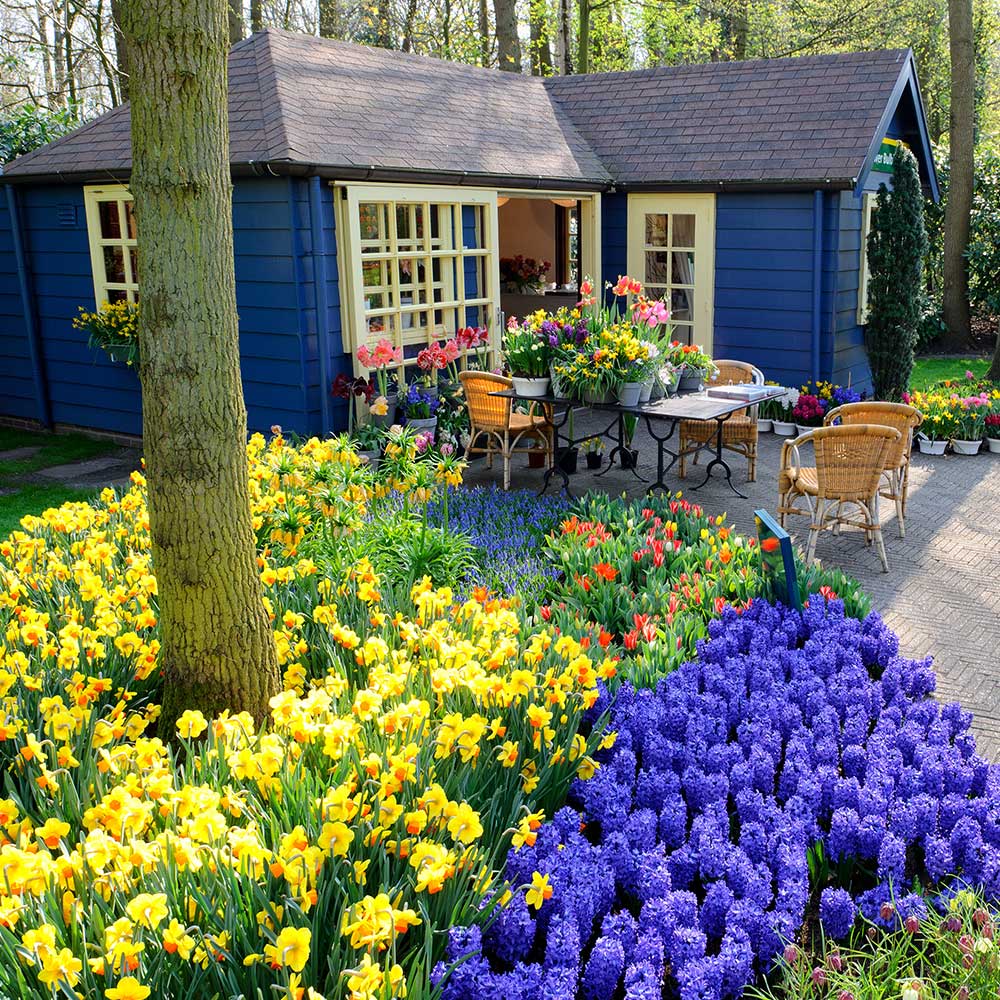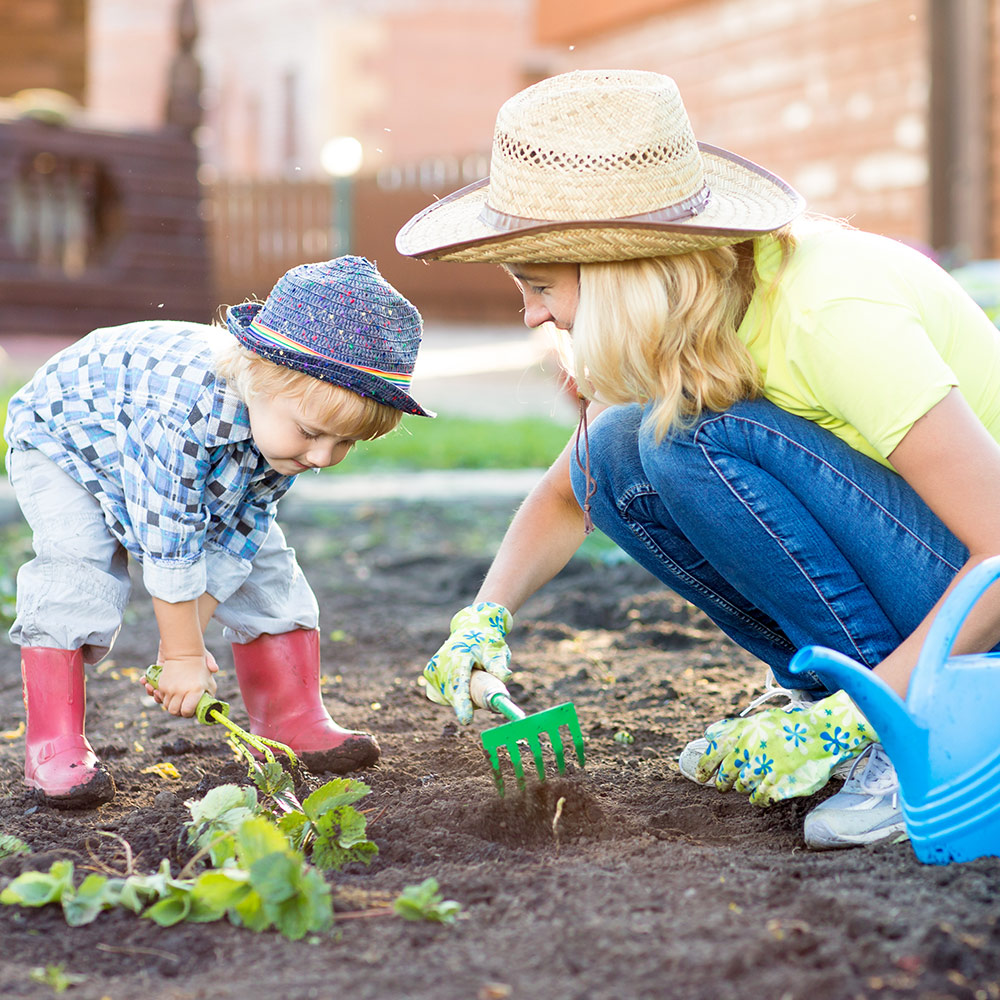
Do you have what you need to make your garden grow?


Garden Center
Shop Outdoor and Garden Supplies Near You
Shop Plants Online
The Home Depot Garden Center at Decatur, AL
Spring Black Friday Savings
The Home Depot Spring Black Friday sale is your chance to save on patio furniture, outdoor power equipment, and lawn and garden supplies. Spruce up your lawn with fertilizer, add fresh flowers to your garden, then relax outside to enjoy it all. This spring sale runs from April 4th to 28th, so remember to shop before it ends.
Mother's Day Gardening Gift Sale
Our Mother's Day Sale is the perfect time to help Mom upgrade her garden. We've got deals on popular brands of herb plants, decorative plants, and those details that make a garden special: garden decor, flower pots, and planters. If you're on the fence about the right present when searching for Mother's Day gifts, a gift card is always a winner. Shop The Home Depot Mother's Day Gardening Gifts Sale from May 2nd to May 12th in-store or online.
It's time to start thinking of spring. We're here to help you prepare for sprouts poking up, fragrant breezes, and warmer temperatures. Planting seeds indoors means you'll be ready to transplant spring flowers and young veggie plants when the frosts are through and the ground thaws. You might even want to directly plant organic seeds into the earth.
Plant Hardiness Zones Explained
The first thing to learn when planting spring flowers, veggies, and other seeds is your planting zone. Every location in the U.S. and its territories is sorted into blocks by climate. Find your zone on the USDA growing zone map and learn when to plant seeds.
For example, you could transplant bell peppers outdoors in mid-March in Zone 10, but not until the end of May in Zone 4. The plants that'll thrive in your area are in your zone, and all the zones numbered less than that. In other words, a Zone 5 garden can support plants listed as Zones 1–5. The timeframe to direct sow outdoors in your garden is often around a month later than the indoor start date. Always read your seed packet for details. If you start them later than recommended, it's not ideal, but it should even out as time passes.
Gardening in Your Growing Zone
The Mid-South is in Zones 7–9, with coastal regions being warmest and the zone number decreasing to an 8, then a 7 as you go up in elevation to the foothills of the Georgia mountains. Just check your planting zone, then consult the seed packet for the most accurate instructions for each plant. If you know you're in a micro-climate near a valley, lake, or wetland, zoom in on the USDA planting map for exact details down to street level.
In balmy Zone 9 on the coast, you can begin planning and planting indoors in January if you'd like. Zones 8 and 7 generally have a slightly later recommendation for indoor starts. Cruciferous veggies and garden favorites, like cucumbers, peppers, and tomatoes, all do well when started inside your home. Greens like spinach, artichokes, and fragrant herbs, including basil, parsley, and oregano, also don't mind an early beginning. You can sow flower seeds and watch them mature under the grow lights, too. Whatever you choose to grow, tend them carefully and transplant them after the last frost.
Start Seeds Indoors
Grow your garden from seeds by starting them indoors. We've got all the seed starter supplies you'll need. Veteran planters and new gardeners alike should disinfect seed trays with a watered-down bleach solution before reusing them each year. When your trays or pots are prepared, plant your seeds. As for the soil, check to see if yours needs nutrient balancing. Choose fertilizers that match what you're growing. It'll help give your plants everything they need to grow big and strong.
Measure your finger to use it as a ruler. In general, you'll plant 3–5 seeds, then press them into the soil to the depth you need with your finger. Mark where you planted the seeds with a plant tag or toothpick. Otherwise, it'll be a surprise when the sprouts push out of the soil.
Sprouts
Prepare your seed sprouts for outdoor life while they're still indoors. These micro-seedlings are fragile — only an inch or so high, with the tiniest seedling leaf or two — but they're resilient. Seedlings certainly don't get all this pampering in nature, so they can handle more than you think. However, don't go overboard, as your sprouts are still babies. You can even use an oscillating fan on low to mimic the wind and strengthen their stems.
Harden Your Seedlings
Harden your seedlings for best results later. On days above 45 degrees, take your pots or trays of seedlings outside to slowly warm in the shade for two hours, but bring them inside at night. They're not ready for direct sunlight yet or harsh nighttime temps. Gradually add more outside time each day, incorporating a little sun to get your plants used to it. After a week or more of this, you can leave them out overnight if the temps stay warmer than 50 degrees. Cover your plants if they're in the ground and a late-season frost sneaks back in.
Transplant Young Plants Into Their New Homes
Carefully take your seedling out of the container. A good way to do this is to turn it sideways or upside-down and gently squeeze the plastic to break the seal. If your transplant grew in the garden, dig deeper than you think with your garden trowel and leave plenty of room around the stem. You don't want to damage the root system. Place it into the hole you dug for it, even with the surrounding soil.
Protect Your Garden With Mulch
Finish it off with mulch and compost. Compost enriches the soil so your garden can grow even better. It may help foster larger plants that bear more flowers and fruit. Mulch keeps your soil moist and controls weeds. Mulch and compost can be DIY creations, but you can also purchase them in-store. The next time you're looking for "mulch near me," stop by the Garden Center to get the right amount.
Greet the Spring
Early spring is an exciting time in the world of gardening. Don't miss a minute of growing season. Plan your garden and landscaping, prepare to fertilize your lawn, and browse our garden center pages to find inspiration on which spring flowers to plant when the weather warms. Shop for the fertilizer, seeds, and soil you need in the aisles of your Decatur, AL Garden Center, online, or on our mobile app. Let's get growing together.
Shop Outdoor and Garden Brands
Frequently Asked Questions About Gardening
What planting zone am I in?
Check the USDA growing zone map, as planting zones have shifted slightly through the years. Planting zones with higher numbers can plant earlier in the year. Increase your odds of successful gardening by choosing plants that are meant for your zone.
What does direct sow mean?
If the ground isn't frozen solid and the soil isn't cold, consider planting your fruit, veggie, or flower seeds directly into your garden. This is called the "direct sow" method. Plant after the threat of frost is gone for the season, as sprouts and seedlings can't weather those conditions. You can also start your seeds indoors if you'd like. Consult your seed package for when and how to sow seeds.
Do you carry organic plants and seeds?
Yes, we've got a variety of organic options, including organic fruit seeds and veggie seeds, and organic flower and herb seeds which are subject to availability. We carry the organic soil to plant it in as well as the organic fertilizer to feed it.
Do I have to harden off my seedlings before planting them outside?
Yes, if you raised plants indoors from seeds, harden them before you transplant them. Hardening is the process of getting them used to outdoor life and the fluctuating spring weather. It slows their growth until they're strong and ready to take off during a spring warm front. Hardening also makes your plants more resilient to a sudden cold snap.
What should I do before planting seeds or transplants outside?
Before you plant, make sure that your plant will have the right amount of sun, it's warm enough outside, and the soil is healthy. Check your seed packet to see if it likes shade, partial sun, or full sun, as well as what time of year it should be planted. Space your plants as described for best results so your plant babies have room to flourish.
Should I use peat moss starters or coir starters?
Seed starters, full of nutrients in pots or pellets, work for new and experienced gardeners alike. You don't have to use these starters if you're planting in soil, but you may want to. Starting seeds in peat pots works best for delicately rooted plants like carrots and beets, as well as flowers that require an acidic pH. Some people prefer coir starters instead, as they have a neutral pH. Check what type of soil your plants need to help narrow it down, and chat with a garden center associate if you need more info.
Nearby Stores
4045 Lawson Ridge Dr
Madison, AL 35757
20.49 mi
Mon-Sat: 6:00am - 10:00pm
Sun: 8:00am - 8:00pm
10012 Memorial Pkwy Sw
Huntsville, AL 35803
25.55 mi
Mon-Sat: 6:00am - 10:00pm
Sun: 8:00am - 8:00pm
1035 Memorial Pkwy Nw
Huntsville, AL 35801
26.19 mi
Mon-Sat: 6:00am - 10:00pm
Sun: 8:00am - 8:00pm
)

)

.jpeg?im=Crop,rect=(363.69230769230774,1.2307692307692308,958.7692307692308,958.7692307692308))
)
)
)
)









)
)




)


)
)














































